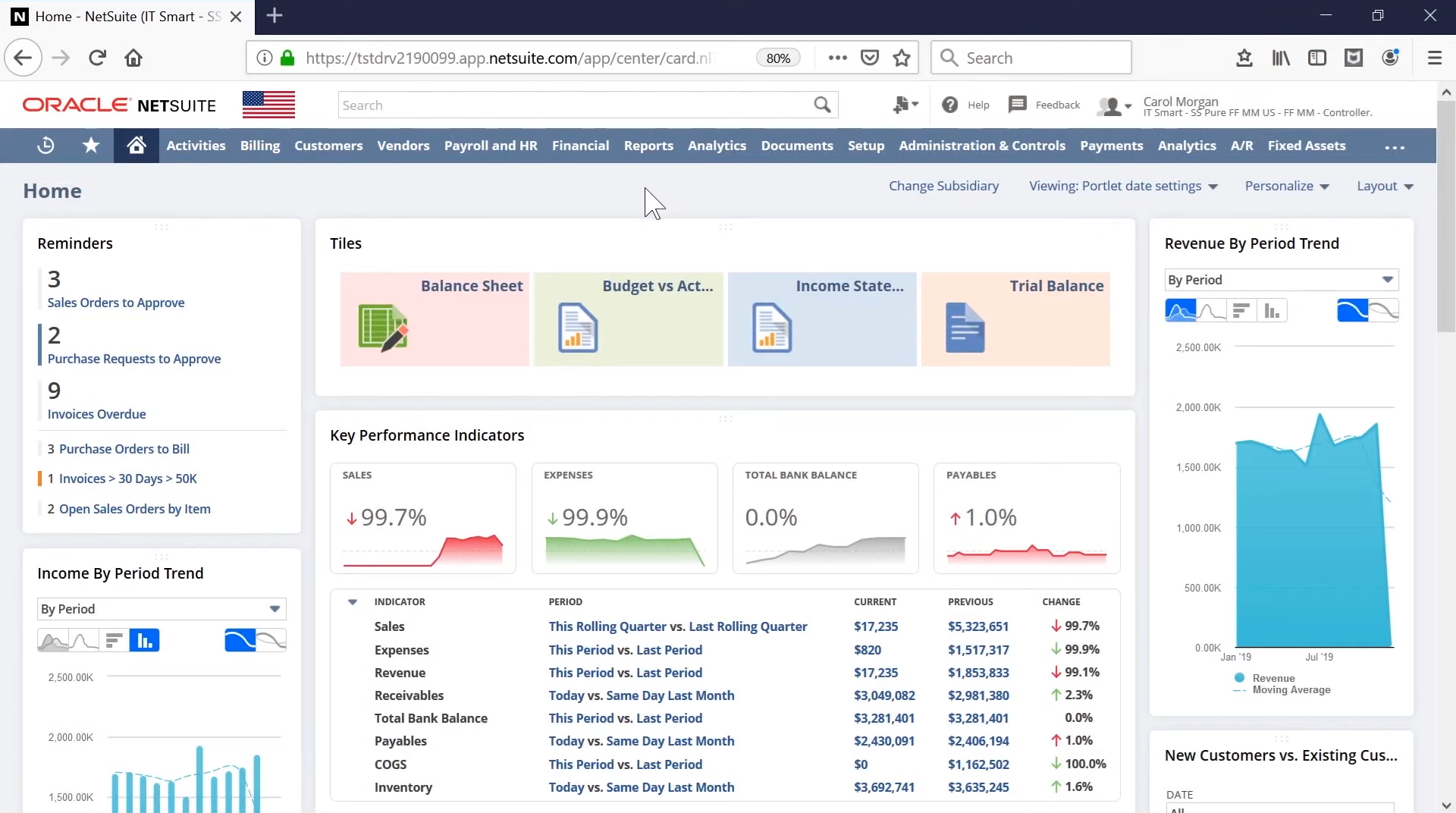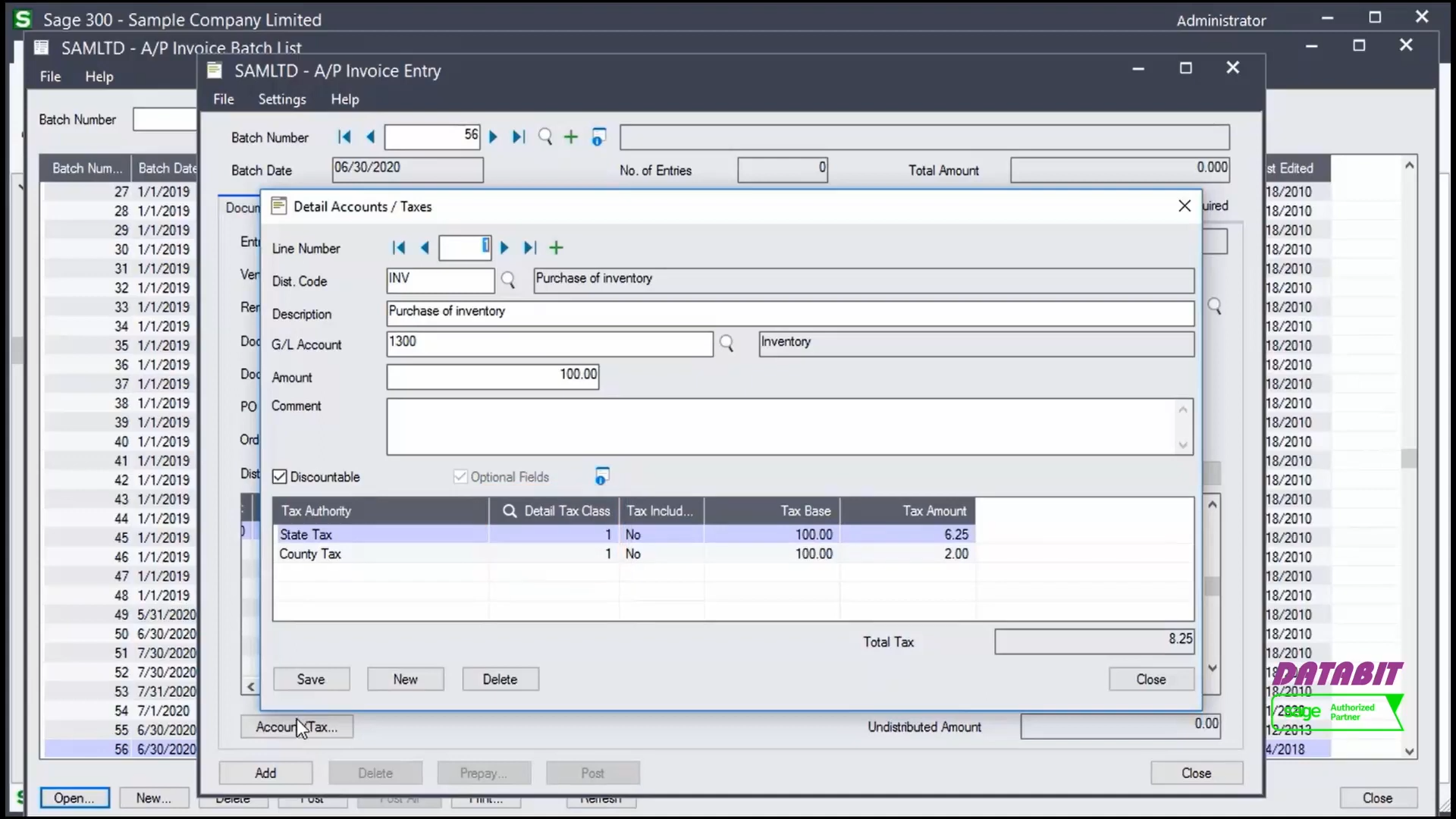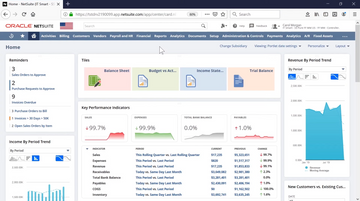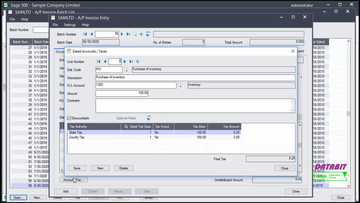NetSuite ERP vs. Sage 300


Sage 300, previously known as ACCPAC, is an ERP software designed for small and medium-sized businesses. It offers financial and operational management, including accounts payable/receivable, general ledger, inventory control, project/job costing, and purchase order management.
This ERP system supports multi-entity, multi-location, and multi-currency operations, making it suitable for global businesses. It also integrates with Sage Intelligence for reporting and BI tools. Sage 300’s strong VAR network means it has a variety of industry-specific add-ons and tailored support services.
-
Price Range
$ $ $ $ $$ $ $ $ $
- Starting Price $1,398/month
- Client OS Web
-
Price Range
$ $ $ $ $$ $ $ $ $
- Starting Price $2,075/user (perpetual license)
- Client OS Windows, Web
Our editorial review staff has tried and reviewed two popular ERP software systems, NetSuite ERP and Sage 300. This comparison is uses our hands-on experience to help you identify which solution might be better suited for your business needs.
NetSuite ERP Overview
NetSuite is typically a good fit for a wide range of businesses, from small companies to large enterprises with over 10,000 employees. It’s an adaptable system that can effectively cater to finance, operations, sales, service, and HR needs. ANd hundreds of third-party add-ons expand the overall functionality.
NetSuite ERP is well-known for its accounting and supply chain management capabilities. It offers comprehensive functionality and a mature, cloud-native design. The system is highly customizable and scalable, making it a good fit for companies expecting to grow. However, due to its complexity, NetSuite may not be the best choice for startups or businesses without technical expertise.
Sage 300 Overview
Sage 300 tends to work best for medium-sized businesses, particularly those with a strong focus on accounting. The system is flexible enough to be used in various industries. Most of its users are based in the United States and Canada.
Sage 300 shines in its multi-currency and multi-company capabilities, making it a suitable choice for global businesses. Its robust financial module is a standout feature, and users can customize reports using the Sage 300 CRE Report Designer. However, the system may pose challenges for new users due to its steep learning curve. Some users report performance issues with large datasets and limited web functionality.
NetSuite vs Sage 300: Which is Better for Most Businesses?
After careful consideration, we found that NetSuite ERP is likely the better choice for most businesses. Its advanced features, out-of-the-box functionality, and scalability make it a great fit for a wide range of business sizes and industries. However, companies with a strong focus on accounting or those operating in multiple currencies or companies may prefer the specific capabilities offered by Sage 300.
Both NetSuite and Sage 300 have a cloud-hosted deployment model, but Sage 300 also offers an on-premises option for businesses that prefer it.
You might find our roundup of the best ERP software helpful in making your decision.



